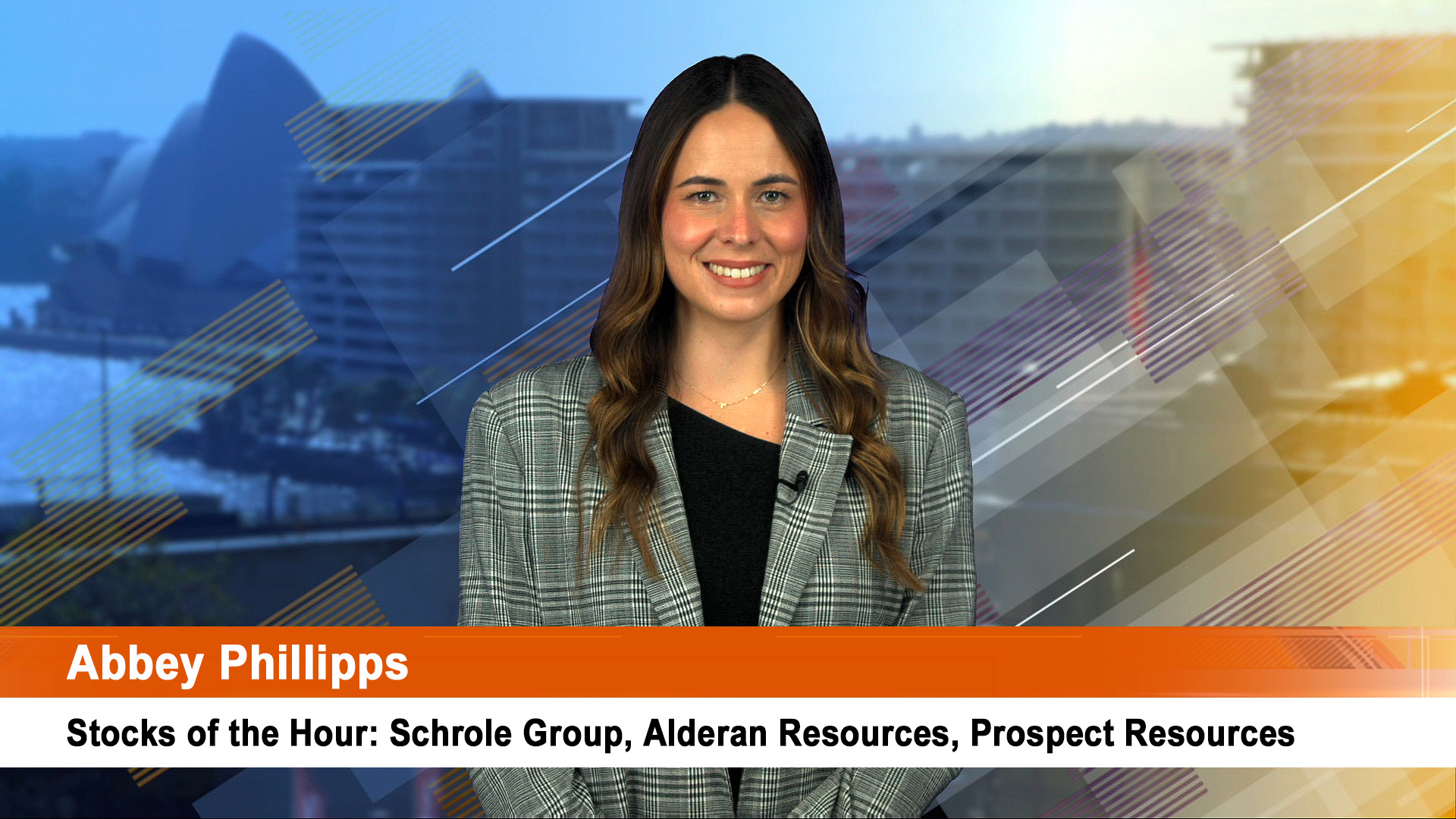Insights from Ausbil's Paul Xiradis on market performance, sector strategies and the outlook for earnings.
Paul Sanger: Hi, I'm Paul Sanger for the Finance News Network, and joining us this day is Ausbil's Executive Chairman, Chief Investment Officer and Head of Equities, Paul Xiradis. Paul, welcome.
Paul Xiradis: Thank you.
Paul Sanger: Now, Paul, can we begin our discussion today by talking about the performance of the fund?
Paul Xiradis: Yeah. Look, it's been a pretty good year as well in absolute terms. The market actually performed well and we've been able to keep ahead of that, only just, for the year. But it certainly has been a good year in absolute terms, up about 14.5%, or thereabouts. Our long-term track record is looking good, obviously. We've been going at it for over 27 years now and certainly we've been able to deliver good performance over that period. Sitting at just a little bit under 3% per annum before fees over 27 years is something we are definitely proud of.
Paul Sanger: Absolutely. And your out performance, what have been the key drivers of the out performance?
Paul Xiradis: The last 12 months it's been a little bit more challenging in the sense of really identifying the sectors and also the stocks, because it has been fairly whippy. So it really is more coming down to stock selection to a large extent. And then obviously sector exposures are important as well. For instance, we are underweight REITs, which is a sector which for most of last year underperformed, but the last three months performed very well. But we managed to add value by still being underweight, and it really came through stock selection. So that's been a good area for our performance for us.
In the financials, we've been able to add value as well, but again quite specific reasons. So it's more stock selection, why that may be the case. The banks had a pretty rollercoaster ride during the course of the year, but overall we've actually been able to do well and also in other financials which has served the portfolio well. But an area which really performed well for us was technology. So we had pretty good exposures in some of the tech names. Invested early and that's proven to be a good outcome, and also beneficial in some regard. There was Altium, which was taken out, which also contributed to the overall performance of the fund. So from that perspective it's been quite good.
Paul Sanger: And you mentioned the markets haven't been easy to navigate. They've been pretty volatile. In terms of your portfolio, have you made any specific shifts with regards to sectors?
Paul Xiradis: Yeah. Look, we have been moving around our portfolio because obviously we are entering into a newer environment. We believe that over the next 12 months earnings are going to broadly recover against the backdrop of a pretty strong or improving economic environment here and also globally. So that has ramifications in the sense of numbers, stocks, and sectors. So we have been broadening our positions into those stocks and sectors, which we think will do quite well. So we have been lifting our exposure of late to some of the resource names. We see resources recovering reasonably well. Very mixed year last year with resources, I must say. It was really specific in some regards. Some doing well, some doing very poorly. Some of the areas which really underperformed was definitely in the lithium names, where some stocks which outperformed were definitely in some of the copper names and also the bulks.
But what we have been doing has been reinvesting some of our new money or into some of the lithium names after them coming back quite dramatically. So we've been lifting our exposures there, maintaining our exposure in copper as an example. And that's served us well. Other areas that we are looking at, we're still maintaining a pretty good position in technology. We think that looks good. We're trying to capture the AI theme as well. We haven't got the luxury of those companies which are directly associated with AI, but indirectly or the enablers, if you like, and also the beneficiaries. So we have lifted our exposure in a couple of stocks which should benefit from that really in data centres. So you can think about those stocks and names which will do well there.
And also some of the beneficiaries of what AI can actually do from an efficiency point of view and try and identify some stocks and sectors there, which we have been doing. We're still reasonably comfortable with the outlook and the recovery of Australia, as we are saying before. So we're trying to capture that from a more cyclical perspective. That's always difficult because we really haven't got the depth there, but we have been shifting in some towards that direction over the past little while.
Paul Sanger: And just back to some of the talk about the resources, Lithium obviously had a pretty tough year, but you obviously see the time now to go back into copper. You mentioned that you've been exposed to that and I see a number of the major banks have upgraded their copper prices aggressively this week, so it sounds like it'd be stronger for longer. You did mention gold, and gold have been on a tear since late October when central banks really started to aggressively buy. And, again, there's been some big predictions with some of the big banks that gold's going to be stronger for longer. Is that a sector you've looked at you're exposed to?
Paul Xiradis: We do have exposure towards gold but not aggressively so, or not overweight, if I call it in those 'portfolio terms'. We do have a name which also has a buy credit from copper. So it's more of a gold-copper play, and that has served us well by the way, which I didn't mention. I think that it's interesting we have seen the gold price move up, but there has been no follow through as far as share market performance has been concerned. A little, but nowhere near to the same extent. Now, what we are finding is that it hasn't really embraced the investing public globally nor internationally, so what you need to see I think is a pick-up in activity from money flow into some of those gold funds.
That could occur, and that's something that potentially will occur if the gold price remains higher. But gold is a difficult one to actually analyze. I can come up with the same reasons why gold is going up for the reasons why it may be going down. So everything's got to be stock specific, is the way that we see it, and we do have exposure which is a gold and copper combination.
Paul Sanger: Fantastic. And then looking more broadly at Australia, are you confident that inflation domestically is under control and how critical are interest rates to your outlook for equity markets?
Paul Xiradis: Inflation is something which we've got to be razor sharp on and razor focused on, because clearly we're not out of the woods from that concern. But there are some signs that inflation is moderating, which is good. I think that when you think about inflation continuing, it's got to be price on price for the following year because that's a measure of change. We think that measure of change is contracting, so therefore inflation should come back. But there are some pressures there. We are still seeing some good inflation. We are seeing some wage inflation there, which is coming through, and some for very good reasons but I think there are signs that it's moderating.
So if that is the case, we're of the view that there is room for interest rate cuts but not immediately. And the reason for that is that the underlying economy is doing well. There's still some inflationary pressures there. The rule rate is starting to expand because inflation is coming down. So next year we think that the authorities will be in a good position to start being a little bit more opportunistic in the sense of cutting rates to support growth, which I think will elongate growth over the next 12 months.
Paul Sanger: And what do you see as the key risk to your current outlook?
Paul Xiradis: Yeah. Look, I think that one thing which you can't really quantify is really geopolitical risk. That's one thing that no one wants. And clearly what happens there is, well, we don't know exactly what that would manifest to be in the form of markets, but it does create uncertainty and it could actually create a bit of a risk or risk-off basis. But what we have found over the years, since markets do adjust rather quickly and it creates an opportunity, we're not saying that there is going to be an opportunity because of a sell-off for geopolitical, but we're not taking that into account other than being attuned and aware of that. So one of the things that we do for our broad-based portfolio is to make sure that we have good quality names, good quality balance sheets, high liquidity stocks. That's what saves us, I think, and it also gives the ability to actually add to it if they get oversold. So that's the way that we manage that broader risk, which is the unknown risk.
Paul Sanger: Yeah, it's a very sound strategy. And then based on your current outlook, what is your view on earnings growth across the sectors and where do you see the best earnings growth coming from?
Paul Xiradis: I mean, we are quite optimistic, I must say, on the growth outlook over and above that of consensus. We know what the market is thinking and also have access to what consensus data is and also the makeup of that. There is a view generally speaking that earnings will recover this current or next financial year after being negative slightly 3% or 4%. But I might just add that maybe 12 months ago the view was earnings could have been down 15% to 20% in some quarters. So it's actually been a lot less bad, if you like. Our view is that next 12 months we'll see earnings recover. It'll be low single digits, but we think there is room for further upside because I think the market is under appreciating the underlying strength. But also some of the factors that people have in their forecast with some of the big sectors, we think a little bit too conservative or perhaps too aggressive on the downside.
If I think about the banks, for instance, I think there's room for some earnings improvement for the banking sector over the next 12 months, over and above what the consensus is thinking, and that's a 20% market. If I look at resources again, I think that if our view plays out we could see some upgrades coming across the board. I think we'll definitely see that in energy names. That's already coming across right now because energy prices are higher and demand for energy has never been higher and likely to accelerate particularly with AI in particular again. So we think there's room there. We think copper, you pointed out, that's a scenario where we see some upside over and above that on what the consensus or the market is anticipating over the next 12 months.
So if I put all that in a melting pot and also look at other sectors which we think should do well, we are above consensus for the next 12 months and we're reasonably conservative in our assumptions, we believe. So we could actually be surprised in the positive over the next 12 months if things pan out the way that we think they could.
Paul Sanger: And obviously, in the US, earnings season's about to kickoff. It kicks off tonight with the major banks. I guess you're looking for the U.S. for potential trends and leads that may filter into Australia?
Paul Xiradis: The US is a good bellwether and also does set the mood or the trend, doesn't it, for markets globally. So what tends to happen there can have a bit of a rub-off effect here, even though they're a little bit unique, uniqueness to each market. But again, if I think about the key drivers to underlying growth and why companies should do well, again, I think about the underlying economy. And what we have seen is the US has been a lot stronger than the market was giving it credit to. And again, the consensus maybe 12 months ago was the US is going to fall into recession. And November that all changed quite dramatically in the sense that, "Oh, we're no longer in a recession. We've landed and actually we're in take off mode here." So that's a big change. So I think the underlying earnings capability of the market is going to be better.
There's also one of the things which we've been following quite closely with the US is that productivity has really improved enormously. And that does mean the ability for corporates to amplify or grow their earnings as a consequence of that through the form of improved margins. So again, we think that's going to be okay. Interest rates have remained at these sorts of levels and, again, there's a fairly large or number of sectors there, particularly the financials, which should do better as a consequence of that. And again, there's been a shift just recently about the quantum of rate reductions. And again, if you think about people's forecast only three or four months ago, the market was anticipating six rate cuts this year, which we thought was crazy.
But now it's come back to two. Therefore, the downward impact of lower rates on some sectors is not going to be there, so therefore there's room for upside there as well. What I'm trying to get to is that I think we're similar here in Australia, but I think US is further advanced and I think that it should be a pretty good reporting season for the US as well.
Paul Sanger: Yeah, we're watching it very, very closely. And Paul, just to finish up with today, how do you see the de-carbonization thematic impacting Australian companies?
Paul Xiradis: Look, it's something which we have to live with and actually is only going to grow more in importance each year in the sense of focus and also what it means for our particular groups and companies. But we also have an added thing now, which is that, through increased demand or increased energy, particularly with AI, is also something that we have to be contending with. So we have a move that the world wants to move to a less carbon intensive world, but at the same time we have increased intensity of power, and how's that going to be sourced, how's that going to be generated in order to fill that? So we think it's going to be pretty broad in the sense there's obviously clearly going to be some stocks which will be beneficiaries that will actually look to deliver on that low carbon, but there's also going to be other sectors which should do reasonably well as well.
And if I think of it as a general grouping, again, resources should be quite well because they have the enablers to actually build out the capacity for this increased demand that is required, and also moving from less carbon to less carbon intensive, which requires build out. So therefore their sectors there. And also other names such as data centres, which I called out a little bit earlier are a couple of examples. So I think that Australia is more coming from the enablers point of view rather than them directly being revolutionary in the sense of technology. But there are some moves to actually try to improve on that and to adapt new technology to reduce overall carbon. So it's just going to be a moving first I think over the next few years.
Paul Sanger: Paul, it's been an absolute pleasure hearing your insights today. Many thanks for your time.
Paul Xiradis: Thanks for your time as well. Thank you.
Ends













